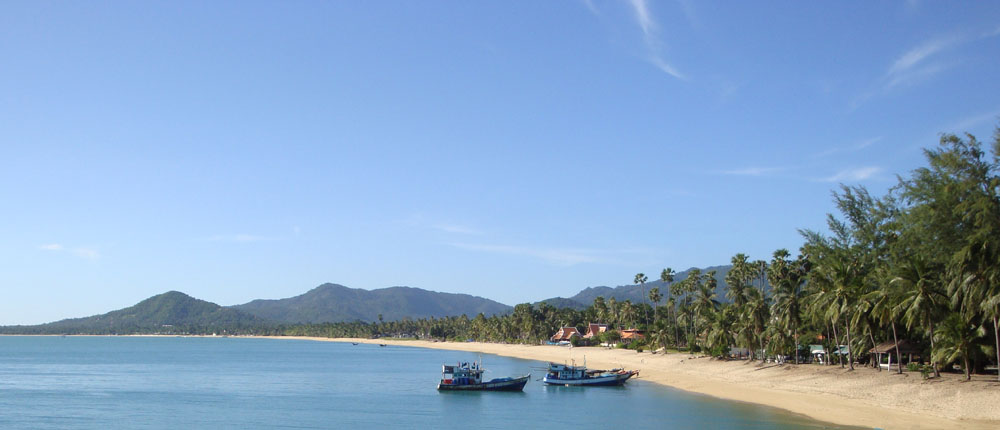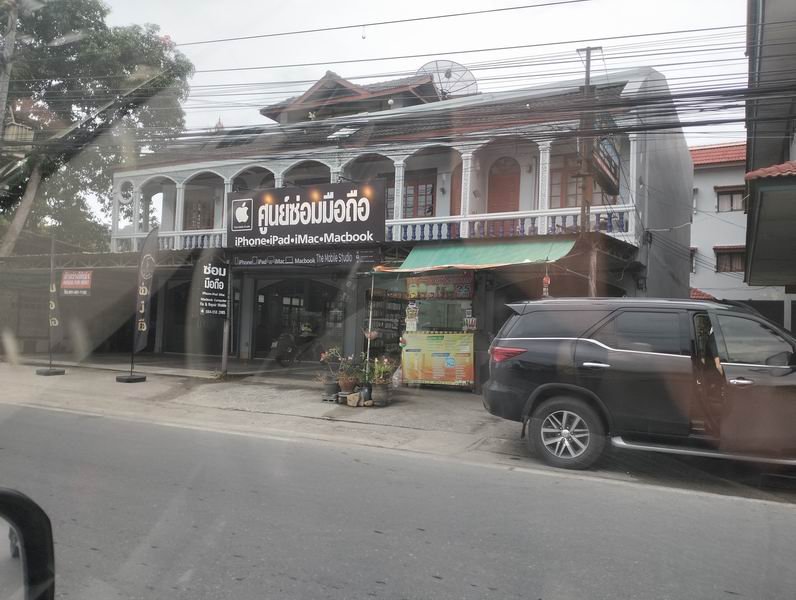-
Posts
12,522 -
Joined
-
Last visited
Content Type
Events
Forums
Downloads
Quizzes
Gallery
Blogs
Everything posted by khunPer
-

One Year Extension Headache
khunPer replied to parallaxtech's topic in Koh Samui, Koh Phangan, Koh Tao
Yes, missing TM30 is a well known issue, if you are not aware of the importance of it – I've also tried to be rejected once, when been outside Surat Thani Province. If you stay outside the Surat Thani province, you need to submit a new TM30-form, which is a notification of a foreigner staying at an address (appartement, hotel, house, etc.). Samui Immigration is little special and strict with this, while immigrations in other provinces accept stay outside the province and even travelling abroad with a re-enter permit. You need your landlord or owner of the property where you stay, to fill a TM30-form each time you have been registered outside Surat Thani Province or have left the country. It is the duty of the host. If you rent an appartement or a house, or own you home, you might yourself be the host and responsible to TM30 notifications of foreigners staying at the address. TM30 can be submitted electronically HERE, where you also can register as host. To register as host you need to upload some documents, depending of you are the owner and is registered in a house book, or you are a renter and therefore need copies your landlord's house book and ID-card etc. -

Why is Thailand not full of so called Asylum Seekers?
khunPer replied to bob smith's topic in ASEAN NOW Community Pub
Because the don't get asylum, so the so-called asylum seekers heads for better destinations, whenever possible for them. -
It's really depending of where you live and your lifestyle; i.e., what you need of transportation. Some places, like Bangkok, public transportation might be better than having your own car. Second hand car are relative expensive to buy as maintenance labour is cheap. It's of course a question of economy, but as a new smaller car can be bought from around 500,000 baht including warranty, it's worth considering that, instead of paying 300,000 baht or more for a 10-year old vehicle. It's relative easy to get a car serviced; relative easy, as it's again a question of where you live. In a village near Nakhon Nowhere a brand name repair shop, like for example at Toyota shop, might be some distance away. My first owned car in Thailand was an 11-year old second hand and cheap to keep running, using a local repair shop for service. At a point the age of the car made some more major service soon necessary, so I decide to shift to a brand new car. I got one third of my initial second hand price back for a car that I've used for eight years. If you live somewhere, where it's essential with a car for, for example shopping, it might be cheaper to own one than paying taxi or song thaew every time, if those are available at all. It's quite simple math to calculate the costs of public transportation and taxis compared to buying a car; fuel use with for example 10 kilometres per litre; insurance and tax, with can be everything between mandatory insurance and road tax for around 1,500 baht per year, to a first class insurance that might end up close to 20,000 baht per year; service for around 5,000 baht average per year, but more for an old car. Furthermore, it a question of comfort, and how much one is willing to pay for that. Traffic – and if you are not used to left side driving, chose a car with automatic gear – is also depending of where you drive. However, a car is manyfold more safe than motorbike; more than 70% of fatal accidents are people on motorbike and around 8% are pedestrians. Despite of the chaotic traffic, Bangkok is actually one of the safest places in fatal accidents, while Rayong are among the top of fatal accidents. However, fatal numbers might be calculated different – dead on the spot only, or dead after 30 days later included – placing other destinations high on fatal the list, for example Koh Samui. I've been driving in Thailand since 2001 – both up rural north and on fatal Koh Samui – and so far survived. Personally I would find it uncomfortable to live here without a car.
-
Many, if not most, passport offices have a same day delivery in the office. There is a surcharge for this service, it was 1,000 baht a few years ago.. Leaving on a Thai passport is correct, you don't need to have entered Thailand on the same, as your son is Thai citizen and renewing his passport domestically.
-
There is to my knowledge one sanctuary and four places with elephant rides.
-
Just like living in the past on Samui; many people wants the good old time back, here is some of it...😉
-

Pattaya rebranding as family-friendly destination to boost tourism
khunPer replied to webfact's topic in Pattaya News
I presume that it's going be a hard job to both change image and make Pattaya physically family friendly... -

Pattaya rebranding as family-friendly destination to boost tourism
khunPer replied to webfact's topic in Pattaya News
I presume that it's going be a hard job to both change image and make Pattaya physically family friendly... -

Pattaya rebranding as family-friendly destination to boost tourism
khunPer replied to webfact's topic in Pattaya News
I presume that it's going be a hard job to both change image and make Pattaya physically family friendly... -

Pattaya rebranding as family-friendly destination to boost tourism
khunPer replied to webfact's topic in Pattaya News
I presume that it's going be a hard job to both change image and make Pattaya physically family friendly... -

US Senator Warns Over Move Forward Party Dissolution
khunPer replied to webfact's topic in Thailand News
Just wonder what US would say if Thailand criticize their political system... -

Why are there so many farang lefties in Thailand
khunPer replied to susanlea's topic in Political Soapbox
Two reasons for "left wings" in Thailand: 1) Because they can afford it...👍 2) Because you don't hear much about the right wings in their 300,000+ baht a month rented luxury villas; they spend time to enjoy the life that their money can buy, and don't sit on social media all day long complaining over inequality... -
As you say, 1,000 is enough for a 13-year old...👍
-

"Regrets" versus "best thing I ever did".
khunPer replied to swissie's topic in ASEAN NOW Community Pub
"Regrets": That I still haven't won the EuroJackpot... "Best thing I ever did": Move to Thailand... -

New Passport. Changing visa stamps etc.
khunPer replied to phetphet's topic in Koh Samui, Koh Phangan, Koh Tao
You should rather change as fast as possible and also update drivers license – if passport number is used – and bank account(s) to new passport number; and of course anywhere else your passport number is used as indentification. -

International Driving Permit required?
khunPer replied to sheldoncollier's topic in Thailand Motor Discussion
Unfortunately, that is what it's called in Danish language – "internationalt kørekort" = "international driving license" when translated – so the embassy writes it totally correct... -

Why do Thai women actually love foreign men?
khunPer replied to Alpha84's topic in ASEAN NOW Community Pub
Yep, I have an irresistible sexy body...👍😎 -
Not really, but my clever girlfriend has some income, mainly from her investments (and I've got some good advises from her...👍). I'm the major provider to the household; that how it often is in Thailand, the man is the provider...
-

International Driving Permit required?
khunPer replied to sheldoncollier's topic in Thailand Motor Discussion
According to my home country's (Denmark) embassy in Bangkok you cannot. However, an international drivers permit is only a translation of a driving license, and the EU license has clear text in Latin letters and symbols for permitted vehicle. Worst case is if anything happens and insurance avoids cover due to incorrect driver's license. Danish Bangkok-embassy text: Should you drive a car or motorbike in Thailand? Then you must have either a Thai or international driver's license. Thailand only recognizes international driving licenses issued in accordance with the Geneva Convention 1949. Therefore, check that you have the right driving license before you hit the roads. -
Little late I passed it, but for others, if need of a Mac-repair, the one I mentioned above is opposite Bandon Hospital...
-
If the company has been incorporated using nominee directors (usually to circumvent Thai law), as he stated (but you chose to ignore), the company is not legal. Not all Thai company limited that use nominee shareholders, many are performing legal business. It's those I refers to, not the illegal ones. Please note that I was replying to: "Basically if you are not married to a Thai or the owner of a company (which is illegal if you are using nominee share holders) you cannot get a card." The "nominee" remark is clearly mentioned in parenthesis.
-
No, you are not a resident, if you're not registered in a house book or one of the other possibilities listed below. These are the rules: Must be A Koh Samui, Koh Pha Ngan or Koh Tao resident or A descendant or spouse of a resident of Koh Samui, Koh Pha Ngan, or Koh Tao whose name appears on the household registration certificate. An owner and holder of the title to the property or land on Koh Samui or Koh PhaNgan Koh Tao District. A hotel/business employee on Koh Samui, Koh Pha Ngan or Koh Tao* An owner of an operating business on Koh Samui, Koh Pha Ngan or Koh Tao A government official on Koh Samui, Koh Pha Ngan or Koh Tao A student at school, college or university on Koh Samui, Koh Pha Ngan or Koh Tao (Under Office of the Basic Education Commission, Ministry of Education). And must NOT be Language School , Tutorial Programs and Nursery Schools. A practising monk at a temple on Koh Samui, Koh Pha Ngan or Koh Tao A medical service employee at a hospital on Koh Samui, Koh Pha Ngan or Koh Tao *Applications for Corporate Memberships will be subject to FlyerBonus Terms and Conditions (for more information please refer to the supporting documentation)
-

Doing my Thai tax return myself
khunPer replied to Dan SG's topic in Jobs, Economy, Banking, Business, Investments
You still needs a TIN; so, you should be able to do it online.







